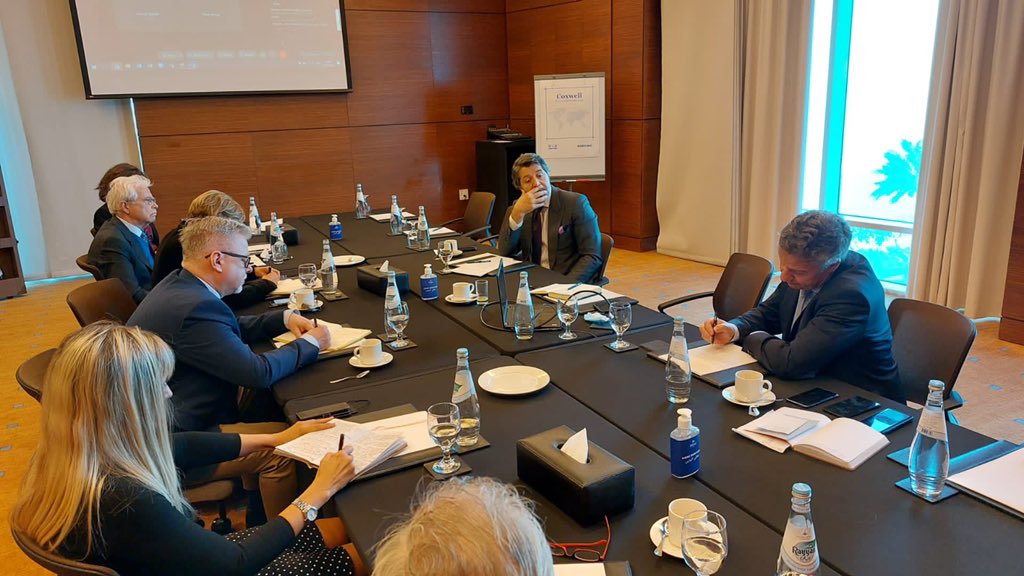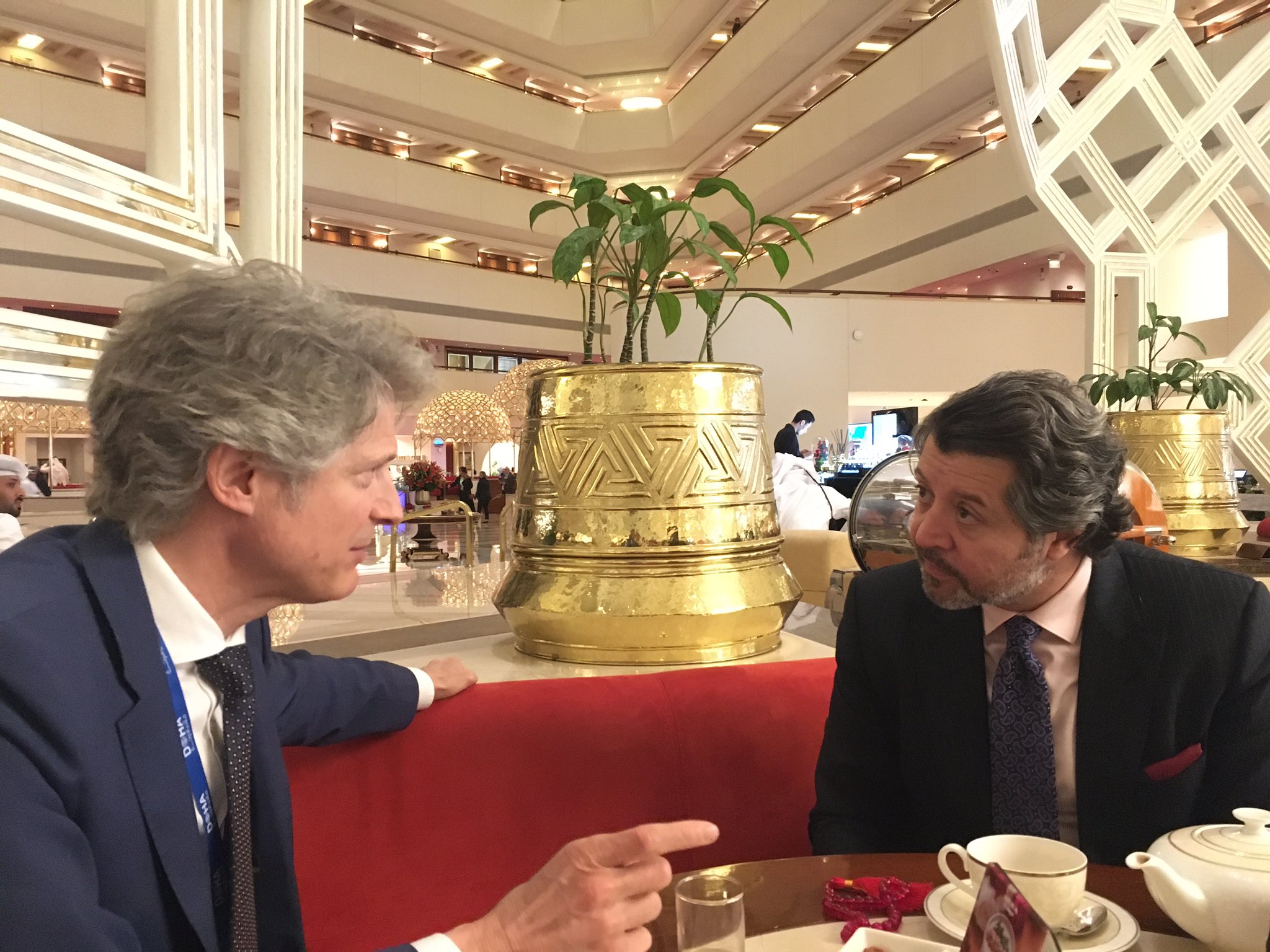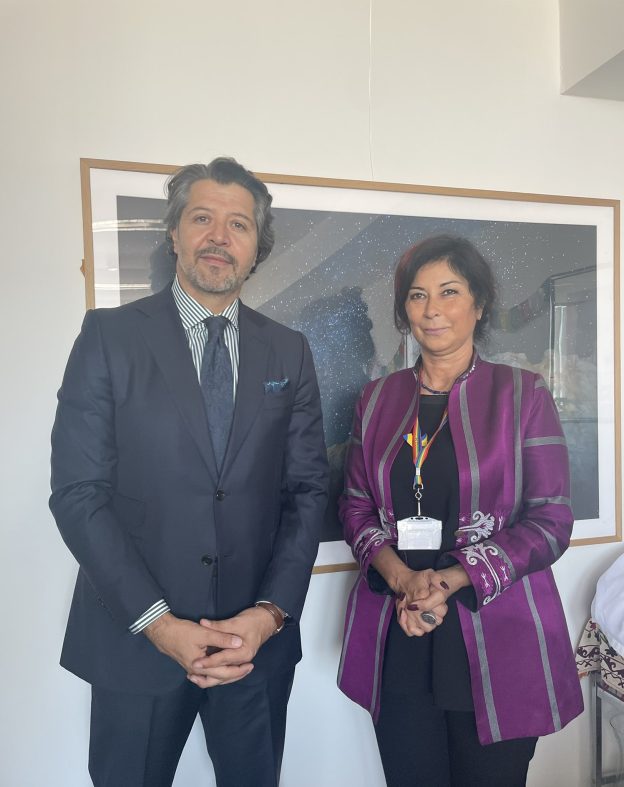Nov 02, 2008
The former minister of communications and current special advisor to President Hamid Karzai, Mr. Masoom Stanekzai, visited CAPS on Thursday 9 October 2008. Minister Stanekzai, who recently served as a fellow at the United States Institute of Peace (www.usip.org) shared his views on the current political and security concerns of Afghanistan and the wider region. The main topics of discussion at the meeting were the Taliban and the insurgency at large, the role of Pakistan and the border territories, and the on-going reconciliation process to re-integrate former anti-state spoilers into Afghan society.
Minister Stanekzai highlighted certain problems as key to the on-going deterioration of security in Afghanistan – Pakistan’s tacit support for numerous insurgent cells ASDE-stabilisers against both the Afghan government and, more in directly, against the influence of India in Afghanistan; a maladroit national bureaucracy and the in effectuality of sections of the Afghan security forces; and the lack of a clear frame work for reconciliation with insurgent groups and other violent individuals. He also pilloried the ruinous effect of collateral damage in the shapes of civilian deaths perpetuated by both international and Afghan security forces in the struggle to capture Afghan ‘hearts and minds.’
The minister denounced the use of Pakistani territory as a safe haven for insurgent groups, and remarked that Pakistani policy toward this practice is one of denial. He characterised the motive behind this denial as the “use [of the] insurgency as a political tool in Afghanistan and India.” The minister added that Pakistan had been using Afghanistan as a “milking-cow.” He concluded that only the agreement by Afghanistan, Pakistan, and India jointly on a regional frame work for combating this practice could bring about an end to the problem. In a recent special report for USIP[1]Minister Stanekzai advised that an intra-regional agreement of this kind would also aid in the reconciliation efforts between the Afghan government and insurgent groups.
With regards to the counter-insurgency inside of Afghanistan, Minister Stanekzai decried the lack of a consistent policy or set of tactics on the part of the government all forces. He advocated the employment of amore proactive policy towards responding to insurgent threats hence forward. The minister’s recent Special Report even advocated for a temporary international troop increase to try and beat back insurgent efforts. He cautioned, however, against the a version among the international actors in Afghanistan to coordinate their efforts as they pertain to a collaborative counter-insurgency strategy. This seemingly willful resistance to an over-arching synchronisation among the international players extends to every other realm of their involvement in the country.
Minister Stanekzai added that the reconciliation efforts, of which he has played a leading role to date, have lacked the necessary frame work and have fallen short in offering adequate incentives to convince insurgent groups and individuals to join with the political process and renounce violence. The minister’s Special Report recommended that the reconciliation process take place simultaneously at the individual, community and regional levels under the auspices of a lone senior focal point. Minister Stanekzai added that the entire enterprise of reconciliation should operate under Afghan ownership, though not without help from the UNAMA mission. The special report recommends that certain additional stipulations to the reconciliation process be observed throughout: that the rights of erstwhile sufferers at the hands of those re-integrated individuals or groups be respected under both the existing judicial set-up and under Sharia law; that international forces not derail the process by repeatedly arresting re-integrated individuals or their families; and that some means of confirming that former insurgents are adhering to the terms of the reconciliation, essentially a probationary scheme, be put into place.
[1] http://www.usip.org/pubs/specialreports/sr212.html





Leave A Comment